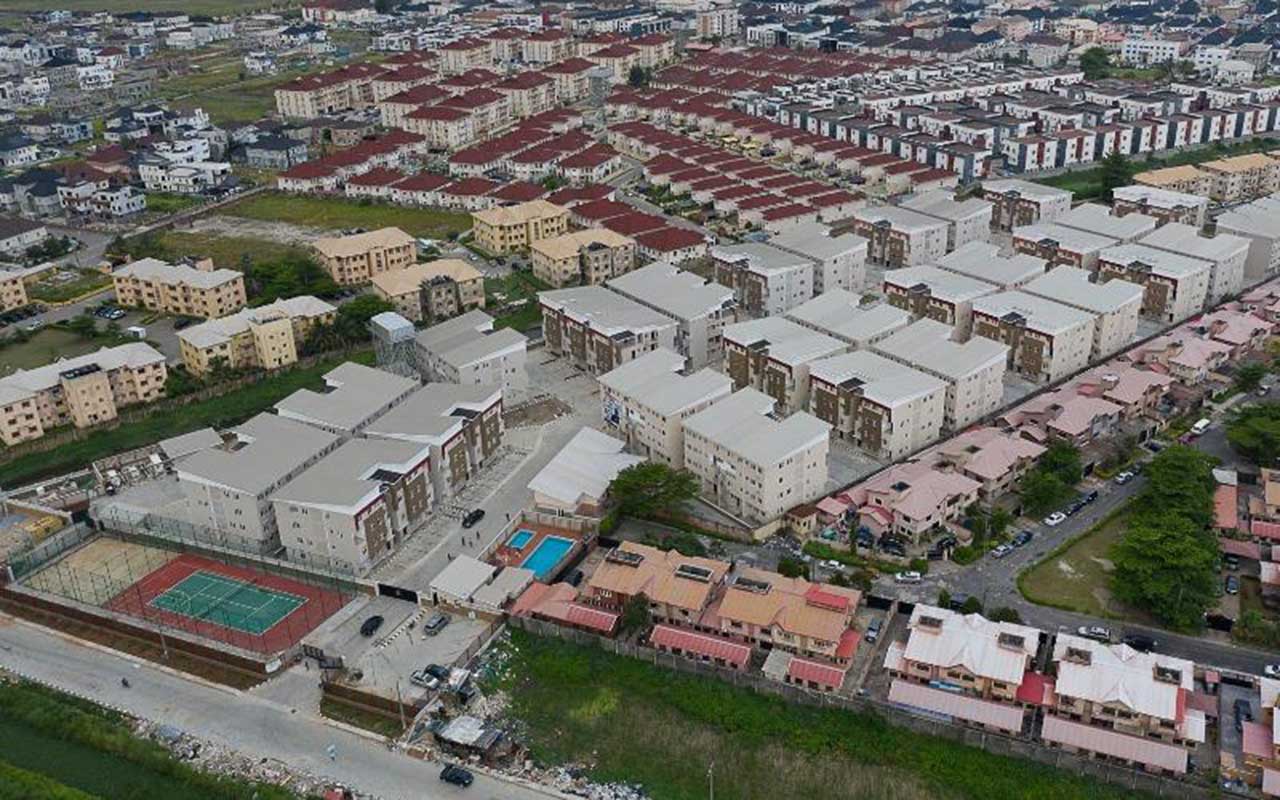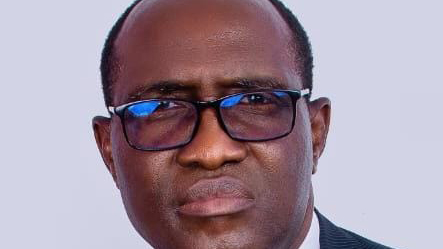Nigeria’s housing crisis cuts across economics, governance, and the environment. Experts insist that decent, affordable housing can serve as the nexus between poverty reduction, job creation, and climate resilience. When homes are accessible, energy-efficient, and secure, they become the cornerstone of sustainable development, CHINEDUM UWAEGBULAM reports.
In the bustling streets of Lagos, thousands of families retreat each evening into makeshift shacks propped up with wood and corrugated iron.In Abuja, shiny estates with manicured lawns and high fences stand in stark contrast, often half-empty because few Nigerians can afford them. These two realities of Nigerian housing tell a story of inequality and a missed opportunity to make housing the engine of sustainable development.
Experts acknowledged that housing is not just about shelter; it is the foundation of health, education, climate resilience, and economic productivity. Yet despite decades of policies and projects, housing delivery continues to lag behind Nigeria’s growing needs.
A mounting deficit
A UN-Habitat report estimates that 2.8 billion people worldwide are affected by inadequate housing, a figure projected to rise due to rapid population growth, urbanisation, and economic pressures. About 1.1 billion people live in informal settlements, while over 300 million are homeless, a crisis deepened by poverty, inequality, and climate change.
Nigeria mirrors this global challenge. The country’s housing deficit is estimated between 17 and 28 million units, with demand far outpacing supply each year. Despite numerous public and private projects, the gap remains wide.
Most newly built houses target the middle and upper-income classes, leaving millions of low-income earners behind. For the market woman in Aba, the keke rider in Kano, or the teacher in Jos, home ownership remains out of reach. Even rental housing in major cities consumes more than half of a household’s income, pushing families into overcrowded, informal settlements.
Policy without practice
Nigeria has not ignored its housing problem. The National Housing Policy, first introduced in 1991 and revised multiple times, seeks to provide accessible housing for all.
The Federal Mortgage Bank of Nigeria (FMBN) and the National Housing Fund (NHF) were established to make mortgages more accessible. More recently, the Renewed Hope Cities and Estates Project was launched to deliver thousands of new homes nationwide.
However, these policies have faltered in implementation. The Land Use Act of 1978 continues to make land acquisition expensive and bureaucratic, while mortgage schemes exclude many informal sector workers who lack verifiable incomes. State governments often prefer luxury housing projects that generate political visibility rather than affordable, large-scale developments.
The climate connection
Nigeria’s housing crisis is not just quantitative; it is ecological. Each rainy season, floods sweep through cities like Lagos, Makurdi, and Bayelsa, destroying homes and displacing thousands. Rising temperatures and poor ventilation in crowded settlements worsen respiratory illnesses and heat-related diseases.
Ironically, most new houses are not climate-smart. Heavy dependence on cement and imported materials increases both costs and carbon emissions. Few developers integrate solar energy, rainwater harvesting or green building practices.
In some states, innovative efforts are emerging. Projects using compressed earth blocks in Kaduna and treated bamboo in Lagos show that sustainable materials can be both affordable and durable. Yet these remain isolated experiments, not mainstream practice.
Life in the slums
ACCORDING to the UN-Habitat Strategic Plan 2026–2029, addressing global housing crises requires transforming access to land, basic services, and adequate housing, especially for vulnerable groups and those affected by climate impacts.
For millions of Nigerians, housing means surviving in informal settlements and areas like Makoko and Badia East in Lagos epitomise urban poverty, such as shacks on stilts, tin roofs patched with plastic sheets, and a lack of clean water, sanitation, and electricity.
Rather than upgrading, government responses often involve forced evictions and the displacement of families without alternatives. Such actions deepen poverty and undermine Sustainable Development Goal (SDG) 11, which calls for inclusive, safe, and resilient cities.
Housing as development
PUTTING housing at the centre of sustainable development is not abstract policy; it is an urgent necessity. Decent housing improves health by reducing malaria and cholera risks, supports education by giving children stable learning environments, and fuels the economy through construction jobs and material supply chains. It also strengthens resilience to floods, heat, and displacement.
Without solving the housing crisis, Nigeria’s progress toward sustainable development will remain uneven. Homes are more than structures; they are the foundation of dignity, productivity, and social stability.
What needs to change
UN-Habitat maintains that many Sustainable Development Goals cannot be achieved without adequate housing. Shelter underpins health, safety, education, and inclusion. Addressing housing deficits is thus key to building equitable and resilient cities where no one is left behind.
Experts propose reforms and innovations that could reposition housing as a driver of national development.
Former president of the Association of Town Planning Consultants of Nigeria (ATOPCON), Dr Moses Ogunleye, urged government at all levels to recognise the multidimensional nature of housing and its impacts across sectors. “There must be genuine commitment to implementing policies, laws, and programmes that ensure the provision of quality and affordable housing,” he said.
Ogunleye identified Nigeria’s weak mortgage system as a major constraint. “To service a mortgage, one needs a steady income over time. But most Nigerians work in the informal sector, where incomes are irregular. Microfinance cannot easily support housing because it’s a long-term, capital-intensive investment.”
He suggested strengthening housing cooperatives, which pool savings for collective ownership, and emphasised adaptive planning to make housing and infrastructure more resilient to climate change.
On informal settlements, Ogunleye advocated upgrading instead of demolition. “With effective planning, informal communities can be improved with minimal disruption to livelihoods. Governments should guide their growth rather than erase them, since they serve as housing for many urban poor despite their challenges.”
Former chairman of the Nigerian Institution of Estate Surveyors and Valuers (NIESV), Lagos branch, Mr Gbenga Ismail, argued that housing should be treated as infrastructure, not charity. “If every housing scheme integrates schools, clinics, jobs, and secure titles, then housing becomes a platform for health, education, and poverty reduction,” he said.
He added that most Nigerians fall outside the mortgage system because their incomes are irregular. For them, homeownership must come through alternative models, housing microfinance for incremental construction, cooperative savings, and rent-to-own schemes that convert rent into equity. “With digital tools like cash-flow scoring and government-backed guarantees, banks can finally serve the majority excluded from formal mortgages,” Ismail said.
He also emphasised climate-responsive design, “We must build for our climate, not against it. Cross-ventilation, shaded courtyards, raised plinths in flood-prone areas, solar-ready roofs, and local materials make affordable homes more resilient.”
On urban renewal, he stressed that upgrading must be done with communities, not to them. “Secure tenure, clean water, sanitation, and reblocked streets can turn slums into productive neighbourhoods. Informal settlements should be engines of urban growth, not afterthoughts.”
He concluded that housing delivery will fail without governance reforms. “We need digitised land registries, predictable approvals, and public-private partnerships that include maintenance. A national housing compact linking government, the private sector, and communities is essential.”
Group Managing Director of Global Property & Facilities International Ltd, Dr Muhammad Balogun, called for an integrated approach that connects shelter with essential infrastructure and services.
He advocated in-situ (on-site) upgrading of informal settlements instead of mass demolition. “This means providing basic services such as water, sanitation, electricity, roads and secure tenure while integrating existing residents into the formal economy. It’s a powerful driver of sustainable urban development and directly advances SDGs 1, 3, 4, 8, and 11.”
Balogun proposed a participatory, hybrid approach that combines community input with institutional support. “Upgrading Nigeria’s informal settlements should be seen as a development opportunity, not a cleanup exercise.”
He urged the adoption of bioclimatic and vernacular-inspired designs to make homes both affordable and climate-resilient. “Designs that reduce dependence on energy-intensive cooling and can withstand floods are vital to our future.”
According to him, integrating housing into Nigeria’s sustainable development agenda requires deep governance reforms anchored on efficiency, transparency, and collaboration. “Public-Private-Community Partnerships (PPCPs) can share risks, leverage local capacity, and ensure inclusiveness,” he said.






